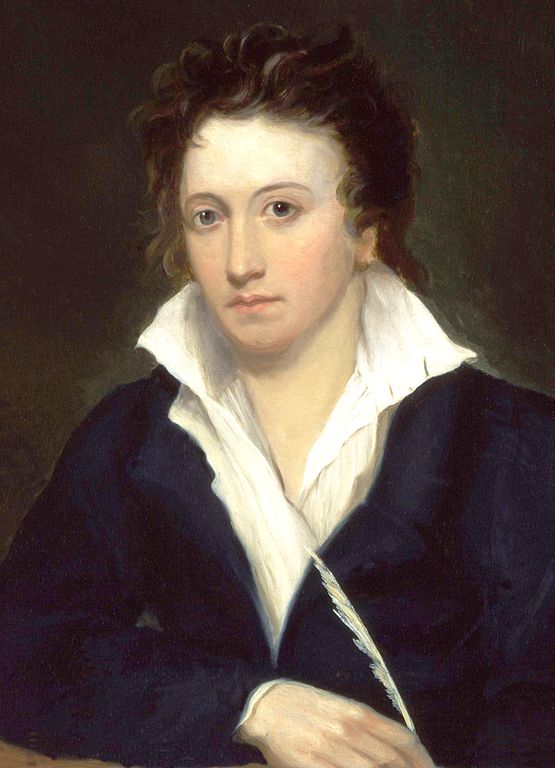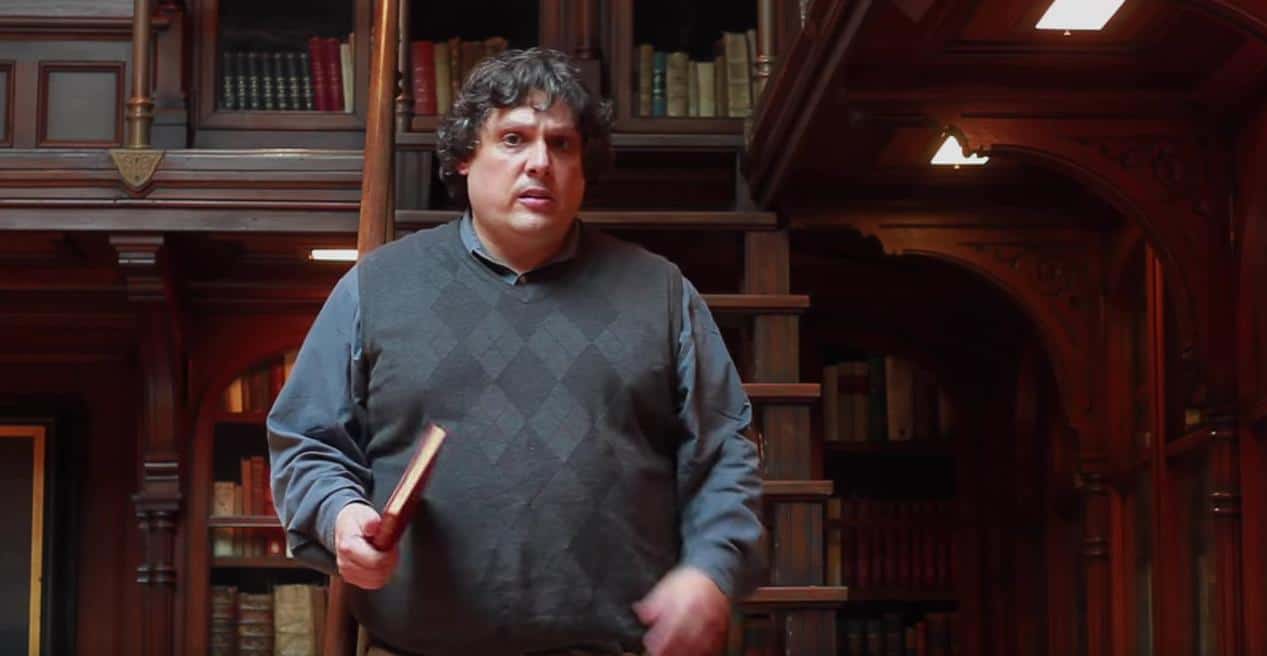In-Depth Review: The Great Poems Series; Unbinding Prometheus
Detailed review by Class Central user Paula Matusa on this revolutionary Romantic era poem.
Review by Paula Matusa. Paula is a Southern California beach town gal and art lover who is developing a passion for poetry, courtesy of some terrific MOOCs she has taken in the last year.
Took the course? Write your own review here. Read all reviews.
This class took me on a memorable and surprising journey into the heart of, yes, a truly great poem, a brilliant and misunderstood (and even maligned) poet, a tumultuous post-revolutionary era, and a circle of young firebrands and idealists who refused to accept the status quo in poetry, politics, manners, culture, religion, you name it. Add in climate change (a frozen summer in Europe) and death by drowning, and the allure of this poet, his masterpiece, Prometheus Unbound, and his milieu is hard to resist. One thing you will definitely learn in this class is that Shelley is no outdated Romantic poet, and that his great poem about a revolution of the heart and mind is meaningful and relevant today.
ERA OF PERCY SHELLEY
Yes, you will be reading one very long poem, possibly something you might not attempt on your own, and yes, we are talking early 19th Century, an era far removed from our own (or is it? — you may be asking by the end of the class). I myself was concerned that my complete lack of knowledge about Percy Shelley, his poetry, the second wave of Romantic poets, etc., would make a class like this difficult and possibly impenetrable.
You will get, in the first module, plenty of background information about Shelley, the Romantics, the social/political climate of the time, etc.
Well, that certainly turned out NOT to be true! Kudos to the Academic Coordinator of The Unbinding Prometheus Project, Eric Alan Weinstein for turning this class, as I indicated, into a journey to a most remarkable world (and a new world for me, given my lack of background). You will get, in the first module, plenty of background information about Shelley, the Romantics, the social/political climate of the time, etc. In fact, in this class, the background is always part of the foreground, because you are entering not only a poem but an environment, a particular universe, its development, its tensions — the crucible from which Shelley emerged and to which he responded with Prometheus Unbound.
THE PANEL
This class, to my mind, offers one of the best ways to read a long poem
This class, to my mind, offers one of the best ways to read a long poem; Prometheus Unbound is broken out into small sections that you can assimilate without feeling overwhelmed and, by the way, the language is so beautiful that it will carry you away, even if you don’t understand everything. For each section of the poem you will watch a series of videos, panel discussions filmed in an actual classroom. The members of the panel are Weinstein and his students and guests, The Penn Shelley Seminar Series, one of the ongoing free educational programs run by Unbinding Prometheus at UPenn. So you will not be watching a lecturer droning on and on. Rather, you will be watching discussions, which I think makes things more interesting and lively. Then you can join in the discussion forums to share your ideas and get to know the other students. The forums really cinched my commitment to this class – more on them in a minute.
Then there are the visiting scholars, lots of them, wow! So some of the top people in the field drop in and give their particular takes on the poem, on Shelley, on the art, science, politics and culture of the time. Noteworthy are Professor Emeritus Stuart Curran of U Penn who wrote one of “the books” on Shelley’s poetry, Shelley’s Annus Mirabilis, and Professor Susan Wolfson of Princeton, who talks about, among other things, Ben Franklin and electricity. Yes, electricity! Who says the Romantics were anti-science? Shelley loved science and had a small lab in his rooms at college. Also, there’s an interesting discussion about Percy and Mary Shelley’s “complicated” relationship (hey, he got involved with her when she was 16 years old and he was married at the time to a woman who became so despondent she committed suicide). Oh, and Mary’s sister, who also loved Shelley, lived with them.
SHELLEY HIMSELF
Shelley was an atheist, a radical and mind-bogglingly erudite. He believed in free love and freedom from all institutional and cultural tyranny. He was disheartened by the cycle of tyranny set off by the French revolution, a revolution that failed “the people,” and he came to envision another kind of revolution, non-violent and non-reactionary, that would start with a change of heart rather than a changing of the guard. His poem Prometheus Unbound is a re-visioning of the ancient Greek play Prometheus Bound; Shelley believed in the “perfectibility of man” — that Prometheus could get free and that man could unbind himself from his own dark nature.
Class Instructor Eric Alan Weinstein gives us some very imaginative exercises to help us step out of our own boxes and put us in touch with Shelley’s mindset
Class Instructor Eric Alan Weinstein (who strongly encourages people to simply call him Eric) gives us some very imaginative exercises to help us step out of our own boxes and put us in touch with Shelley’s mindset. We look at reporting on current day revolutionary movements; we examine heroism; we look at radicalism, from the personal (William Burroughs) to the overtly political (Pinter’s play Mountain Language); we look at the power of place when it comes to our own writing and creative output; and we compare a perfected reality to a messy reality via a Wallace Stevens poem. All of this ties back to Prometheus Unbound in unexpected and interesting ways. It was a bit of a kaleidoscopic experience for me, not so much fractured, but a way of learning that opened up the many colors and flavors of this poem. As I mentioned, Shelley was brilliant, and Prometheus Unbound is absolutely crammed with ideas, mythologies, and references (and also upends and recreates many of those ideas, mythologies and references), so this very open approach to learning is most appropriate.
EFFORT & SUCCESS
As far as time commitment for the class goes, you will be spending about one to two hours per week watching the videos. The discussion forums and imaginative exercises (which are part of the forums) are optional, and you can spend a little or a lot of time on these, as you see fit. Eric posts discussion topics in the forums, for each segment of the poem. If you want a certificate of completion, you are asked to participate regularly in the forums and to complete a 750-2000 word paper at the end of the class. Eric will grade and provide comments on your paper. You will not have to purchase any books, as the poem is online, but Eric does recommend a bio and a few other books if you are interested.
I highly recommend participation in the forums, as you will get to meet your classmates, share your ideas and learn a lot! Plus the forums make the class less a distance learning experience and more an up close and personal one. I have to say that I got to know quite a few of my classmates – I can name them and tell you something about them – and it was always great to check my email in the mornings to read what my classmates had to say about my postings. Additionally, you can mix it up a little bit; things do come up in the forums that have nothing to do with Shelley – like the appendix surgery I had in the last month of the class! And Eric was in the forums often, providing “likes” and comments. I got the feeling he read every comment that was posted.
As far as downsides go, at the beginning of the class there were some issues with the sound quality of the videos, but I believe the technical staff got most of those issues resolved. Also, the class lasted longer than scheduled, because of the fixes needed for sound issues and because some videos weren’t ready to go on schedule. Again, I believe most of those issues were addressed as the class progressed, so they shouldn’t be a problem for the next round. (Also, I kind of like the fact that the class was extended, because I was enjoying it so much!).
CLASS INSTRUCTOR ERIC ALAN WEINSTEIN
Eric Alan is a most likeable and charismatic teacher; in fact I thought for sure he had a theatrical background when he recited a few of the sections from Prometheus Unbound. Actually, he is not from the theater! He is the Academic Coordinator of the Unbinding Prometheus Project located at U Penn, where he hosts the Penn/Shelley Seminar Series and produces the Unbinding Prometheus MOOC. Weinstein is also involved in some other really interesting projects/classes that I wish were MOOCs (in 2015-16 he will be convening Cantos/Paterson: Reading Pound, Williams & Company, an interdisciplinary seminar examining the interrelationship of Pound, Williams, H.D., Moore & Ginsberg’s major works). He is also co-director of the Prometheus Collaborative Digital Initiative at U Penn and is organizing a multi-media project involving 52 collaborative close readings of Walt Whitman’s Song of Myself.
Eric’s wealth of knowledge about Shelley and the Romantic poets, plus his passion and enthusiasm for teaching this great work, make him an ideal guide to the revolution that is Prometheus Unbound. I recommend you check it out, as the revolution will be televised, or at least videocast!
Class Central is looking for reviewers and regular contributors. If you’ve ever finished a MOOC and want to write a critique to help future students considering taking that course, we want to hear from you. Drop us a mail.







